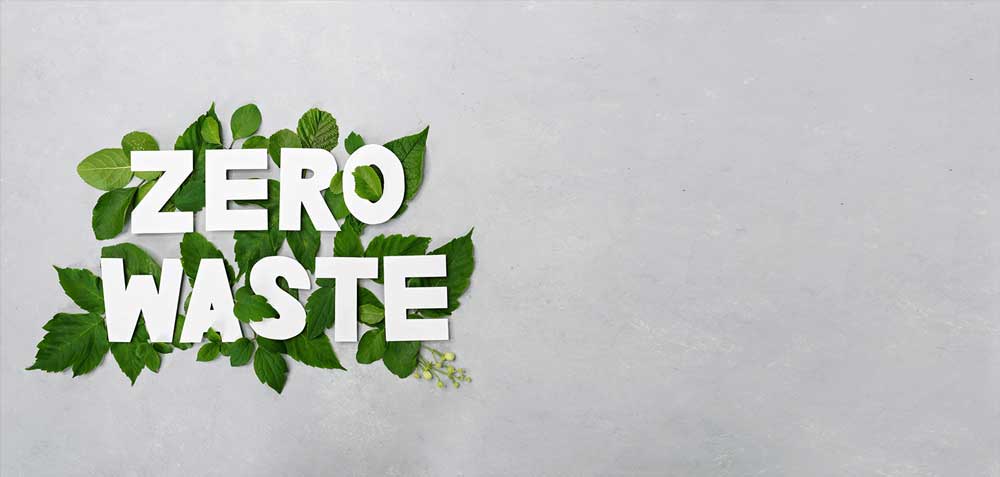N. Munal Meitei
Environmentalist, email- nmunall@yahoo.in

International Day of Zero Waste is celebrated on 30th March with this year’s theme, “Let’s work together to build a world where waste is minimized, resources are valued, and our planet thrives!” This day aims to put the planet and humanity, on health and prosperity. Waste – includes plastics, food, clothes, electronics, debris from mining and construction materials that leads to disastrous consequences for human health and the economy and aggravates the triple planetary crisis of climate change, nature and biodiversity loss and pollution.
Humanity generates an estimated 2.24 billion tons of solid waste annually of which 45% is mismanaged. Without urgent action, municipal solid waste will double to almost 4 billion tons each year by 2050. Around 931 million tons of food is wasted each year and up to 37 million tons of plastic waste end into the ocean annually which is equivalent of one garbage truck full of plastic dumped for every second.
The fundamental and brutal truth is, “humanity is treating our planet like a garbage dump”. Meanwhile, pollution and chemicals are poisoning our water, air and soil. A staggering 10% of all global greenhouse-gas emissions come from food wastes.
We must stop trashing in our home and declare war on waste. Waste management is critical to every household and it is central for improving the lives of people everywhere. To manage waste, we need to act now with technical expertise and innovative. We have the knowledge – both scientific and indigenous – to find solutions to the waste crisis. Zero waste should be the goal from person by person, city by city and region by region – to become a global movement that extends beyond the borders of the countries. It is the beginning of a better earth, our common home.
Zero waste is the key component that the potential waste of a product generates throughout its life cycles from the point of manufacture upto the end. The benefits of zero waste include clean water, fresh air, fertile soils, sanitary cities, resilient economies and sustainable extraction.
Nearly 30% of the food produced worldwide is lost or wasted every year. These are enough food to feed around one billion people in the world. If you can picture 23 million fully-loaded 40-ton trucks waste – bumper-to-bumper, it will enough to circle the Earth seven times.
Food is the primary source of landfill gas and the largest component of materials sent to landfills, which leads to methane emissions that cause climate change. The report estimates in 2022 states, 61% of food waste was generated by households, 26% from food service and 13% from retail.
About 53.6 million tons of e-waste were generated in 2019 and only 17.4% are collected and recycled. The continuous growth in the amount of solid waste and slow rate of degradation are leading cause to increase in litter found everywhere.
One major solution to food loss and waste is better cold chain management, ensuring that products are kept at a suitable and uninterrupted temperature conditions all the way from harvest to plate. The lack of effective refrigeration contributes about 526 million tons of food waste every year creating a vicious income loss for farmers. This poses a challenge in developing countries, particularly in rural areas, where most of the food is produced.
While we are wasting so much food, over 783 million people sleep without food and some 690 million people worldwide are undernourished. Three billion people are unable to afford a healthy diet. Reducing food waste at the retail, food service and household levels can provide multi-faceted benefits for people and the planet.
Food waste generates all the environmental impacts. Reducing food waste at home is one of the easiest ways to reduce your climate footprint. You eat – and make food decisions – at least three times a day. Check your fridge before your shopping to avoid impulse purchases. If you can, buy fresh food regularly and top-up when needed.
According to UNEP food wastage index, Indian lost 74 million tons of food in homes every year, which is 22% of food-grain output or 10% of total food-grain and horticulture production, put together in 2022-23. In simple words, it is about 50 kg per person. India stands 2nd in terms of household food wastage worldwide after China. The loss accounts for roughly 8% of the total 931 million tons of global food waste which will be enough to feed for 690 million people who go to bed hungry, including 189.2 million in India.
Manipur generate 178 tons of solid waste daily in which 100 tons are from Imphal city alone. The Imphal city, which roughly with a population of around 3 lakhs, could collect and dispose only about 50% of the waste with IMC and a few NGOs. The remaining 50% of the waste land fill mainly in the Nambul and Imphal Rivers. The worst scene comes when it drains into the Loktak Lake which the largest fresh water lake in Eastern India and the best mirror for tourist in the state.
We all have felt the distinctive foul smell of the Nambul river, the toxic level of its water and amount of solid waste deposition at the center of the capital as a symbol of mismanagement. As seen from the ground, the frequency of waste collection, the number of agencies and giving enough area for disposal are some of the urgent solution. Solid Waste Treatment Plant at Lamdeng will not be enough to take the loads and hence state need to increase more treatment plants by observing NGT guidelines. Currently when collections are stopped for one or two days, heaps of solid wastes are seen to pile up in different parts of Imphal. The same is for other Municipal also. Therefore state need to strictly implement, the Manipur Plastic Policy 2022 dated 20/06/22 and Municipal Solid Waste Management Policy 2022 dated 09/09/22 to become a zero waste state.
As a consumers, choosing to reuse instread of throwing away, recycling properly and avoiding single-use items are some of the best way to reduce waste footprint. Zero waste is our moral responsibility. It’s time to clean up our locality for zero waste to bring a circular progress towards the waste free economies – for the people and planet.













